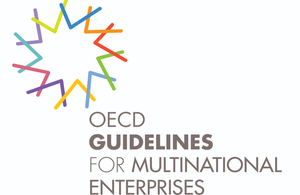Switch to solar energy shows the Coal Authority shine
Solar power is helping the Coal Authority save energy and reduce costs. With sustainability a key focus for the organisation, the Coal Authority has been looking at ways to harness clean energy sources to help run mine water treatment schemes, which need a steady supply of power to run correctly.
Mine water treatment schemes need energy to work hard cleaning mine water for safe release into watercourses. The push to incorporate green energy into these schemes aims to protect the wider environment, to add to the existing role the scheme has to protect the immediate natural environment.
The solar power installation at the Bates mine water treatment scheme near Blyth, in Northumberland, with 2,112 solar panels, has the capacity to produce 550,000kWh of electricity each year and is performing above its expected capacity. In a typical year, 200,000kWh is used for mine water treatment and 350,000kWh is exported to the grid.
Bohdan Iwanskyj, the lead for solar energy projects at the Coal Authority, said:
The use of solar power at our mine water treatment schemes is part of our aim to significantly reduce the energy use of these schemes through innovation, research and development.
We conducted extensive investigations before setting up solar power installations at several of our mine water treatment schemes. The decision on the size of the scheme ultimately depends on the capacity of the local electricity grid as well as the energy being consumed by the pumps. There is no point in producing excess amounts of electricity if we cannot make use of it and export it. Every site is individual in its layout and the problems it poses. However, they all have one factor in common – each site must have the potential to pay for itself and continue to play its part, protecting the environment.
At its peak, the Bates solar installation can generate 570kWp. Underground cables carry the electricity across the Port of Blyth and the site of the Morpeth Academy School to the control room, which is over 400m away. The solar power is directed into the main motor control centre panels where it feeds the electric submersible pump, whilst excess power goes to the grid.
The solar installation started operating on 1 March 2019. It was the seventh Coal Authority site to set up an installation in the first tranche of an innovative solar programme that began in 2016. Projections estimated that the scheme would reduce energy use significantly and drive down electricity costs by around £25,000 a year. The Coal Authority will also benefit annually from £8,250 in generation payments from the government’s Feed-in Tariffs scheme, as well as £20,750 in export payments to the National Grid.
Since it was commissioned, the installation has generated 1,370,000kWh of electricity and has saved around 200 tonnes of CO2 emissions. This has enabled the Coal Authority to stay true to their mission to improve sustainability across the organisation and make use of assets where possible. The cost of the electricity for running the water treatment scheme was in the region of £75,000 per year and is now effectively £21,000, a cost reduction of 72%. The electricity used keeps the pumps working around the clock, due to high water levels and tidal pressures at the site’s coastal location. By implementing technology to use natural resources better, like solar energy, this means schemes will not only be lower in cost to run but also even kinder to the environment.
The Coal Authority’s Dawdon, Deerplay, Chester South Moor, Old Meadows, Taff Merthyr and Woolley mine water treatment schemes also host solar power installations of varying sizes.
Colin Lambert, the Coal Authority’s Innovation Manager added,
As environmental sustainability technology develops and we see more opportunities to make use of these solutions in our schemes, we can make sure that we continue to have a positive impact on the environment.
Our approach is about assessing and implementing the most recent, suitable advances in solar energy generation to enhance the production of clean renewable energy. This emphasis on innovation and investment has enabled us to further our ambitions in sustainable development. We have drafted plans to set up further solar power installations in the future which we are equally excited about.
